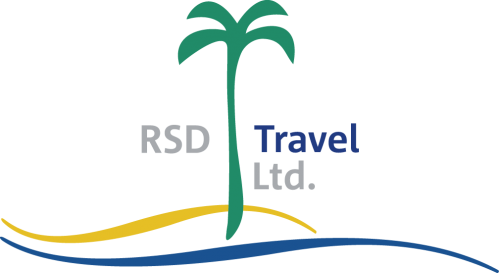National information on France
Comparison of temperatures
| Jan | Feb | Mar | Apr | May | Jun | Jul | Aug | Sep | Oct | Nov | Dec |
| Paris | 6 | 7 | 13 | 15 | 18 | 22 | 26 | 25 | 24 | 15 | 8 | 4 |
| London | 6 | 8 | 9 | 11 | 15 | 20 | 21 | 20 | 19 | 15 | 10 | 7 |
General note:
Below is an information overview. The conditions of entry, as well as the political and health situation, can change anywhere in the world at any time. We therefore recommend checking before your trip. Please check the website of the Foreign Office (www.gov.uk) before your departure.
Location:
The largest European country by area is located in West Europe. France is very varied in terms of its scenery; from the mountain ranges of the Alps and Pyrenees, to the river valleys of the Loire, Rhône and Dordogne to the Côte d’Azur and the regions around Normandy and the Atlantic coast.
Form of government:
Parliamentary democracy with a two chamber system; state president Emmanuel Macron (since March 2017)
Capital:
Paris (approx. 2.2 million residents)
Religion:
predominantly Roman-Catholic
Language:
French
Climate:
Four main regions: Atlantic region – temperate maritime climate; continental region – pronounced temperature differences (particularly in the east); Mediterranean region – moderate, warm maritime climate; alpine region – harsh mountain climate
Local time:
Between France (UTC+2 hour) and UK (UTC+1 hour) there is the whole year a time difference of 1 hour.
Making telephone calls:
The country code for France is 0033 with the zero cancelled before the area code. If you are calling the UK from France, please dial 0044 and the area code without the zero.
Entry requirements for British citizens:
For entry, UK citizens should have at least 3 months left on the passport after the day they plan to leave France and the passport should be less than 10 years old. A stay of up to 90 days in any 180-day period without is permitted without a visa. Nationals of other countries are advised to inquire at the French Embassy about the entry requirements applicable to them. Customers are reminded that it is their sole responsibility to make sure that passport and visa entry requirements for the country or countries that they are visiting are satisfied.
Regulations in respect of passport and visa requirements for France are the responsibility of the Ministry of Foreign Affairs and International Cooperation whose Website is https://www.diplomatie.gouv.fr/en/. However, passport and visa requirements change from time to time and are also dependent on the purpose of your visit and your nationality. Whilst we endeavour to provide guidance where necessary, we can not be responsible for any problems encountered (whether at any point of entry or elsewhere) in the event that passport and visa requirements are not satisfied. For up-to-date information on entry requirements, please visit https://www.gov.uk/foreign-travel-advice/.
From November 2024, the new EU Entry/Exit System (EES) will start for all non-EU nationals, including British nationals, travelling in or out of the Schengen area. The Schengen area is made up of 29 European countries, 25 of which are EU Member States. The EES is a digital border system which registers non-EU visitors travelling into the Schengen area instead of stamping their passports. You will need to have your fingerprints and your photo taken when entering the Schengen area. You may experience longer queues at borders when the new system starts (https://travel-europe.europa.eu/ees_en).
Next to this the EU will implement a new visa waiver system in 2025, called ETIAS, which will be valid for three years. British passport holders travelling to the EU will need to apply and pay for an ETIAS, via an online system (https://etias.com/).
Tour guides:
Your expert tour guides will be able to provide you with detailed information about the country, people, history, culture, etc., and offer advice and assistance for organising your trip. They can also help with room allocation and look forward to welcoming you with initial information. Here you will find out all you need to know and useful information about the trip. We have put together a varied programme including numerous highlights, enabling you to experience the culture and diversity of landscape that France has to offer, and learn all about the country and its people.
Additional package:
Although your trip already includes a comprehensive package, you also have the option of choosing added extras on arrival.
Explorer package: The package includes a boat cruise along the Seine in Paris and a guided tour of Bordeaux with admission to the Bassins de Lumières, as well as an outing around Toulouse and an excursion to Camargue with evening meal: only £149* per person.
Food package: The package includes 7× evening meals (2 course menu): only £199* per person.
* Package prices may vary when booking on site.
Currency/Banks/Credit cards:
France is a member of the EU and of the European Monetary Union. This means that the Euro is the official currency. Exchange rate (as at September 2024): 1 GBP = 1.18 EUR; 1 EUR = 0.84 GBP. Purchases can be made in cash and also with the most common credit cards and sometimes also with an EC card. Cash withdrawals can be made using either a credit card or EC card. In some circumstances a fee may be charged by the relevant bank. You can find out more on this from your bank.
City Tax:
A government tourist and city tax of € 14 (approx. £ 12) per person is also payable locally (as at January 2024).
Customs regulations:
There are a number of products which have entry or exit limitations in France from outside the European Union. These include cultural goods, wild fauna and flora and products derived from these, vegetables and plant products, weapons and ammunition, medicines, tobacco and alcoholic beverages (please note the alcohol and cigarette allowances). You cannot take meat, milk or products containing them into EU countries. In terms of medications, only those necessary for personal use are allowed, and they must be accompanied by a copy of the prescription or medical report.
Important: If you’re travelling to Great Britain from outside the UK, your personal allowances mean you can bring in a certain amount of goods without paying tax or duty. If you go over your allowances you must declare all your goods and pay tax and duty on all the goods in that category. Please inform yourself about the current customs regulations: www.gov.uk/bringing-goods-into-uk-personal-use/arriving-in-Great-Britain.
Country-specific safety and security:
Particularly in larger tourist centres, it is recommended that you take precautions to protect yourself from pickpockets and against petty crime. It is recommended that you securely deposit money, ID cards, driver’s license, air tickets and other important documents (for instance in the hotel safe) and only take with you as much cash as you will require for that particular day (and your EC or credit card). Travellers should keep an eye on their valuables in crowded locations and at tourist hotspots, in airports (including in the security area), train stations, on the underground, bus etc.
On 1 November 2017 new anti-terror legislation was introduced in France which allows the French security authorities to take different measures with the aim of combating terrorism. In this context, in certain areas such as underground and mainline train stations, and in the areas near the border, there may be increased checks on individuals and their baggage. At entrances to certain institutions (e.g. museums) checks may be performed on hand luggage.
Medical information:
At least 8 weeks before your trip, check the latest country-specific health advice from the National Travel Health Network and Centre (NaTHNaC) on the TravelHealthPro website (https://travelhealthpro.org.uk/countries). Each country-specific page has information on vaccine recommendations, any current health risks or outbreaks, and factsheets with information on staying healthy abroad.
Medical care: Anyone entitled to free healthcare in the UK is also entitled to treatment in France – if it is urgently required – from doctors, dentists, hospitals, and so on that are approved by the foreign statutory health insurance company. You should get a free UK Global Health Insurance Card (GHIC) or European Health Insurance Card (EHIC) before leaving the UK. If you already have an EHIC it will still be valid as long as it remains in date. You can also contact your health insurance company for information on current regulations. Nonetheless, you are urgently recommended to take out travel health insurance for the duration of your holiday which covers risks not assumed by the statutory health insurance companies (e.g. repatriation to the UK in the event of illness, treatment by private doctors or in private hospitals). Such policies usually also offer benefits not covered by state health insurance companies, e.g. the costs of repatriation.
Customers must ensure that they are in good physical and mental health in line with the trip in question. Customers must enquire about the physical mobility and psychological autonomy required for this trip.
All information is subject to change/Last updated: September 2024
back Information & tips
 Travel highlights
Travel highlights
 Europe
Europe
 Asia
Asia
 America
America
 Africa
Africa
